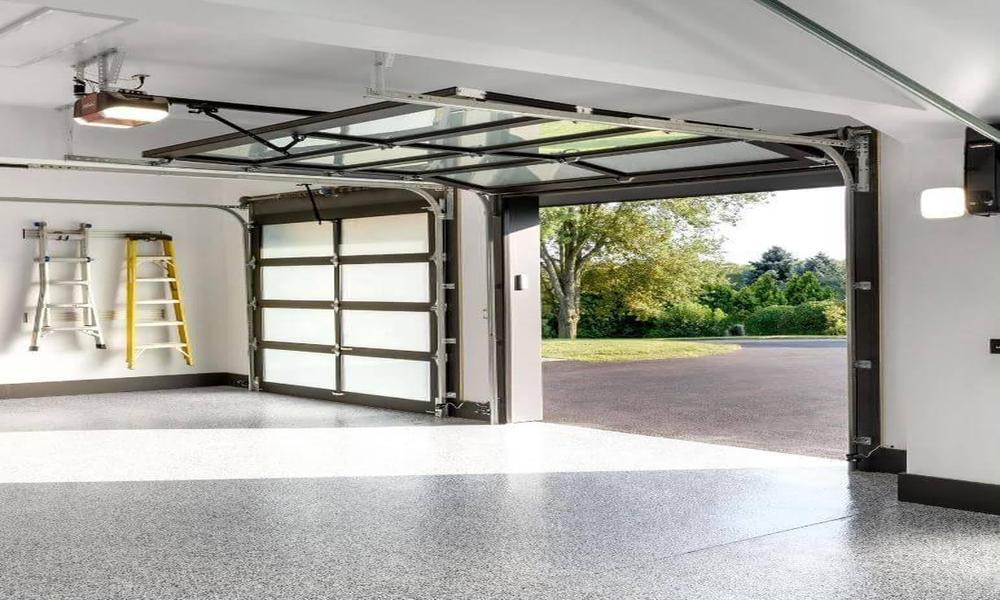Are epoxy garage flooring only suitable for garage?

Epoxy garage flooring has gained significant popularity over the years due to its durability, versatility, and aesthetic appeal. While commonly associated with garage floors, epoxy coatings offer numerous benefits that extend far beyond the confines of a garage. This article aims to explore the versatility of epoxy flooring, highlighting its suitability for various residential, commercial, and industrial applications.
Residential Applications:
1.1. Garages: Let’s begin with the most common use of epoxy flooring. Garage floors endure heavy traffic, exposure to chemicals, stains, and abrasion. Epoxy coatings create a seamless, durable, and easy-to-clean surface, enhancing both the appearance and functionality of a garage.
1.2. Basements: Epoxy garage flooring can transform dull and drab basement floors into visually appealing and moisture-resistant spaces. It helps in preventing water seepage, resisting mold and mildew growth, and providing a robust surface for various activities.
1.3. Living Spaces: Epoxy coatings are finding their way into living spaces, such as kitchens, living rooms, and even bedrooms, as a modern and low-maintenance flooring option. With a wide range of colors and finishes available, epoxy can complement any interior design style while offering exceptional durability.
Commercial Applications:
2.1. Retail Stores: Epoxy garage flooring is a popular choice for retail spaces due to its ability to withstand heavy foot traffic, spills, and stains. It can be customized with vibrant colors and designs, enhancing the ambiance of the store and creating a visually appealing shopping environment.
2.2. Offices: In office spaces, epoxy flooring provides a professional and sleek appearance while offering practical benefits such as noise reduction, easy maintenance, and resistance to wear and tear. Additionally, it can be installed with different textures to create designated zones or highlight specific areas.
2.3. Restaurants and Cafes: Epoxy coatings are ideal for the food and beverage industry as they are resistant to stains, chemicals, and high temperatures. They provide a hygienic surface, comply with health regulations, and can be enhanced with anti-slip additives for increased safety in kitchen areas.
Industrial Applications:
3.1. Warehouses: Epoxy garage flooring is widely used in warehouses and industrial facilities due to its exceptional strength, resistance to heavy loads, and ability to withstand the impact of machinery and equipment. Its seamless nature also makes cleaning and maintenance hassle-free.
3.2. Manufacturing Plants: Epoxy coatings are an excellent choice for manufacturing plants as they offer resistance to chemicals, oils, and solvents. They create a safe and clean working environment, enhance visibility with light-reflective properties, and can be customized with demarcation lines for traffic management.
3.3. Healthcare Facilities: Hospitals, clinics, and laboratories require sterile and clean environments. Epoxy flooring meets these criteria by being antimicrobial, easy to sanitize, and resistant to chemicals used in healthcare settings. It also provides a safe and non-slip surface for areas prone to spills and moisture.
Conclusion:
In conclusion, while epoxy flooring is often associated with garage floors, its versatility extends far beyond this specific application. Whether in residential, commercial, or industrial settings, epoxy coatings offer numerous advantages such as durability, aesthetics, low maintenance, and resistance to various factors like chemicals, stains, and heavy foot or vehicle traffic. With an array of colors, finishes, and customization options available, epoxy flooring has become a go-to choice for enhancing the functionality and visual appeal of different spaces.





